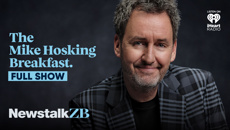President Donald Trump announced Sunday morning that a U.S. operation in Syria led to the death of Abu Bakr al-Baghdadi, the leader of the Islamic State. And three things about the announcement were striking.
One is the amount of detail Trump provided - far more than we're accustomed to in such announcements. He talked about how long he knew about the operation, when he showed up in the Situation Room, how the operation was undertaken, how everyone died - including Baghdadi's wives and children - and he even provided some narrative of the deadly moment.
He said that Baghdadi was run down in a tunnel and that he had three of his children with him. Trump said Baghdadi was "whimpering and crying and screaming all the way" before detonating a vest he was wearing.
Asked how he knew what Baghdadi was doing in the moments before his death, though, Trump demurred. "I don't want to talk about it, but he was screaming, crying and whimpering," said the president, who repeatedly called Baghdadi a "coward." "And he was scared out of his mind."
The second notable thing was the role of the Kurds and Russia.
In the hours before Trump's news conference, the Kurdish-led Syrian Defense Forces (SDF) said this was a joint operation between it and the United States.
But Trump portrayed the U.S.-allied Kurds, who have borne the brunt of the recent U.S. withdrawal from northern Syria and whose value as allies Trump has minimized, as playing more of a bit part.
When Trump initially thanked others, in fact, he mentioned Russia first, then Syria, Turkey and Iraq. He added that there was also "certain support (the Kurds) were able to give us."
Later, Trump would credit Russia first in the news conference, saying that it was "great" and that Iraq was "excellent."
He also disclosed that Russia was given a heads-up about the operation, even as top Democrats in Congress were not. "We told them, 'We're coming in ... and they said, 'Thank you for telling us,'" Trump said. But he added, "They did not know the mission."
Trump said, however, that he didn't tell House Speaker Nancy Pelosi, D-Calif., because he worried about leaks spoiling the operation. And before the news conference, there were reports that Trump also hadn't notified House Intelligence Committee Chairman Adam Schiff, D-Calif., who is a leader of the impeachment inquiry against Trump but would generally be a member of Congress you'd inform about these things.
Trump seems to be indicating that he trusts Russia with this information more than congressional Democrats, which will be a talking point in the days ahead. He also seems to be placing Russia ahead of the Kurds, even though Russia wasn't actually involved in the mission, which seems a conspicuous choice.
The third striking thing here is the credit-taking. Trump wasn't initially very forward about how much credit he thought he deserved for this. But as he took questions, it was clear what he was angling for.
Most significantly, he repeatedly alluded to the idea that Baghdadi's death was a bigger moment than Osama bin Laden's. Bin Laden was killed in 2011 on President Barack Obama's watch, and Trump at the time accused Obama of taking credit for it.
"This is the biggest one perhaps that we've ever captured," Trump said Sunday, early in the question-and-answer portion of the news conference.
Later, he added: "This is the biggest there is. This is the worst ever. Osama bin Laden was big, but Osama bin Laden became big with the World Trade Center. This is a man who built a whole, as he would like to call it, a country."
Trump also eventually returned to his wildly exaggerated claim that he had warned people about a bin Laden attack in a book a year before the Sept. 11, 2001, strikes.
"I don't get any credit for" the bin Laden warnings, he said. "But that's OK. I never do. But here we are."
Take your Radio, Podcasts and Music with you








